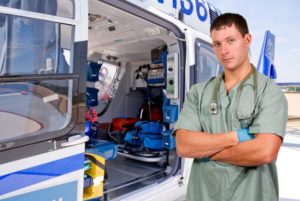A nationwide labor shortage has hit the pandemic-strained healthcare industry particularly hard. Approximately 24% of the 5,000 US hospitals reporting their staff status to the U.S. Department of Health and Human Services (HHS) have a critical staffing shortage. Burnout and attrition are causing a significant share of healthcare professionals to quit, while coronavirus infections continue to put a considerable amount on the sideline.
With the introduction of the Omicron variant and a mutation of Covid-19 and the flu, many facilities are seeing a substantial uptick in covid cases and a steady stream of nurses leaving their line of work, including travel nurses. The CDC has even altered its guidelines for healthcare workers who contract Covid-19 but display mild-to-moderate symptoms. They can return to work five days after symptoms first appear, down from 10 days previously. It’s becoming more than they can handle.
According to Becker’s Hospital Review, more than 900,000 nurses will “retire early,” causing employers to need to hire 1.1 million more permanent staff by 2026. Until then, the travel nurses that remain have stepped up to fill in the gaps where they can. However, can travel nursing agencies keep up with the demand of facilities experiencing these shortages?
The Difference With Nurse First
Despite the critical lack of nurses, doctors, and other medical staff in numerous states and facilities, Nurse First Travel Agency has not experienced a shortage and is still conducting business as usual in this “new normal.” The demand for travelers has always been high and only increases as more cases emerge and less staff is there to help.
Nurse First believes in flexibility and allowing their nurses to do what they think is best for their health. Situations can become extremely hectic in the blink of an eye, so it’s reassuring for travelers to know they won’t be locked down to an assignment and can maneuver accordingly. Regardless of how long they want to stay in a location, there’s always an option to pull out. The travelers still have complete control of where they want to go and for how long.
Omicron’s Impact on Nurse First
There hasn’t been much of a change to the procedures since the beginning of the Covid-19 pandemic. We all had to learn how to be more efficient to match the requirements of facility demands. Now, with more hospitals in need of staffing, Nurse First travel agency has seen an increase in the number of employees from six or seven to around 30, and it’s still on the rise. By the end of the year, there could be 50 to 75 employees.
In addition to becoming more efficient, Nurse First has also made sure to be prepared, especially when working at a new facility. To do what everyone in this industry knows how to do best—keep our travel nursing staff and everyone they look after as safe as possible—you have to be ready to make the call that’s in the best interest of those in your care. It’s necessary to expect the unexpected during this time, and you have to be agile and able to adapt.
The travelers and advocates at Nurse First travel agency are happy to be the mediary between the hospitals and travel nurses to keep them staffed and ready to care for patients. While it’s challenging to provide care to those who need it most, we’re ready to help. If you’re looking to join in, contact us to get started or check out our job board for available travel nurse jobs.

From a Staff Nurse to Travel Nurse: Everything You Need to Know to Expand Your Career
Travel nursing has been an in-demand career for years now, but the pandemic pushed demand for travel nurses to an all-time high. If you’re considering making the move to travel nursing, you’re bound to have certain questions. How does travel

